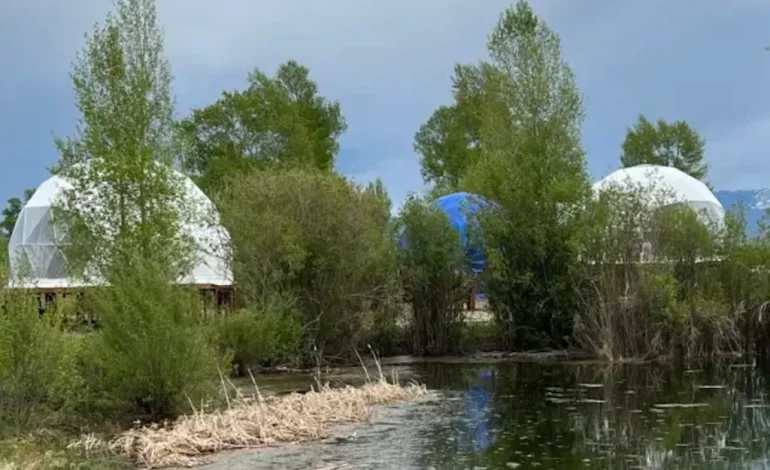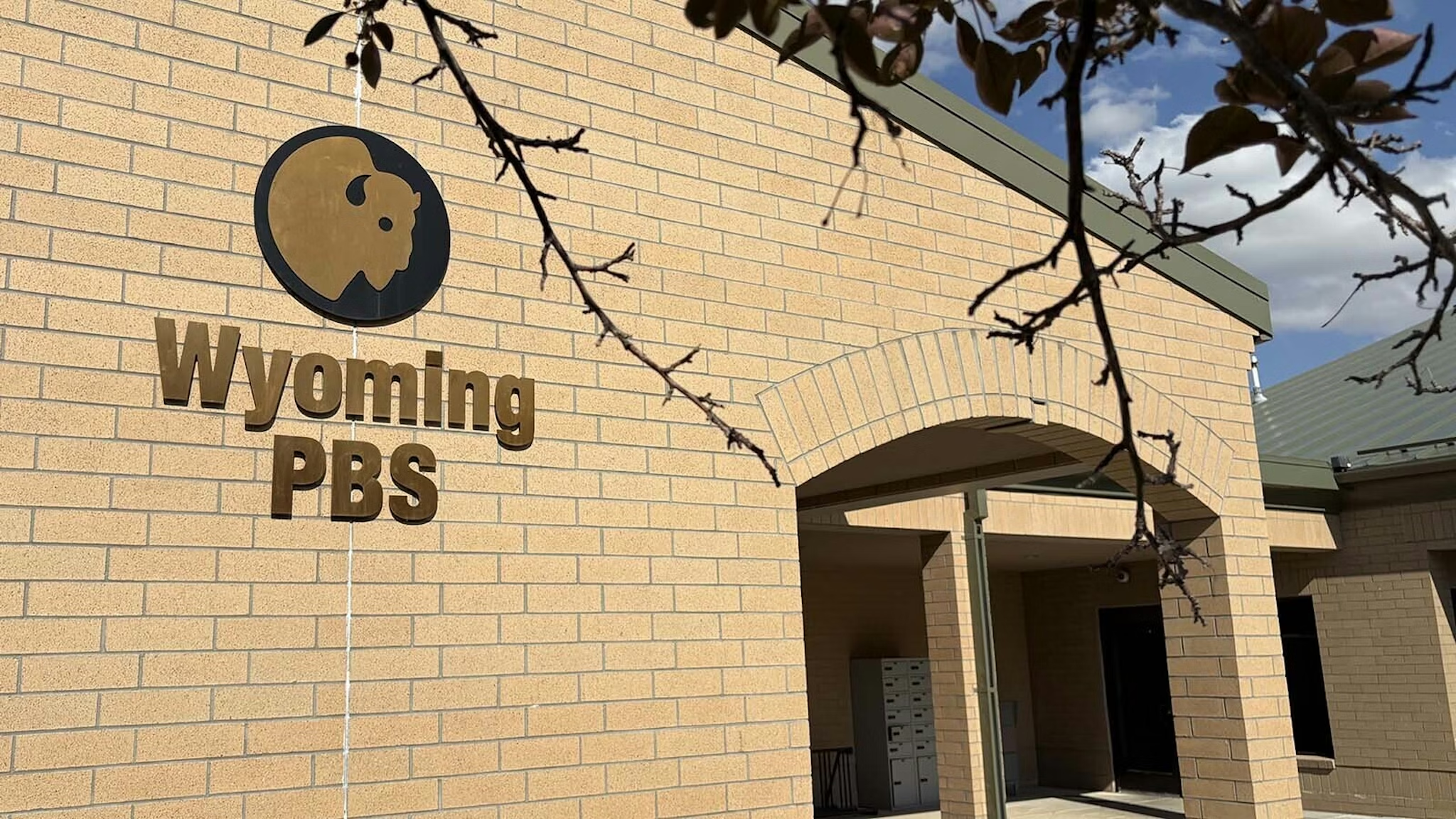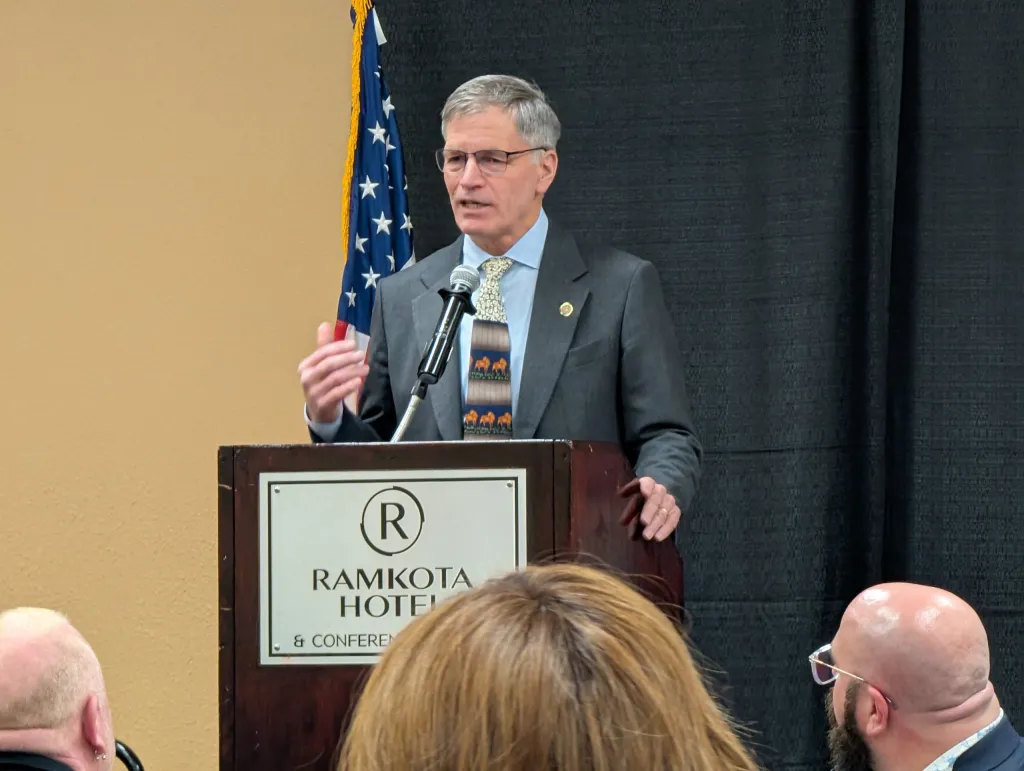Final Legal Obstacle Removed for Teton Glamping Resort as Broader State Land Disputes Continue

A legal chapter closed last week in Teton County, where the last remaining challenge to a high-end glamping resort near Teton Village was dropped by a local environmental group, ending immediate opposition to the project, WyoFile reports.
However, broader debates over state land use and local oversight are still unfolding across Wyoming.
On Thursday, Protect Our Water Jackson Hole (POWJH) withdrew its appeal of a wastewater permit granted to Basecamp Hospitality’s “Tammah” resort — a temporary lodging operation featuring 11 luxury dome tents — effectively ending all active litigation related to the development.
The group had challenged the Wyoming Department of Environmental Quality’s approval of a septic system and leach field installed near the headwaters of Fish Creek, a Class 1 waterway already impaired by E.coli. POWJH’s executive director, Phil Powers, said the decision to withdraw came after the Wyoming Supreme Court ruled in April that the group lacked standing to challenge the permit.
“It didn’t make sense to continue down a path that had already been litigated as one in which we didn’t have adequate standing,” Powers explained.
That withdrawal followed a separate April decision from the state’s highest court, which determined that Teton County could not enforce local development regulations on the Tammah project, citing state authority over temporary use permits issued for school trust lands.
The combination of rulings leaves Basecamp Hospitality in the clear to continue operating the resort under its five-year temporary use permit. Online rates for a night in one of Tammah’s geodesic, canvas-covered domes can exceed $800.
“All legal challenges and regulatory claims — brought by environmental organizations and raised by Teton County — have now been fully resolved in Basecamp’s favor,” said Basecamp attorney Chris Hawks. “Basecamp is proud to continue its partnership with the State in offering a one-of-a-kind, sustainable resort experience in Wyoming.”
The company leases a small portion of a 640-acre state school trust parcel, most of which is used for grazing. Seven other temporary uses also exist on the parcel.
Still, the conversation around oversight of state lands is far from over.
Citizens for Responsible Use of State Lands, a group that sided with Teton County in the legal challenge, said the Supreme Court’s decision was disappointing — but not the end of the story.
Their attorney, Bill Schwartz, said the court acknowledged that long-term leases — unlike temporary use permits — do fall under county jurisdiction. That distinction could shape future developments and lead to potential legislative reforms.
According to Schwartz, the temporary use permit system may be used as a workaround to avoid compliance with local regulations.
“I think it’s clear [the land board] authorized this use through temporary use permits instead of leases to avoid the statutory requirements that they would have to comply with county regulations,” he said.
Momentum is reportedly building among residents and lawmakers to address what critics view as a loophole. One focal point is a gravel mining operation on state trust land near Casper Mountain. The State Board of Land Commissioners will consider renewing Prism Logistics’ lease for the site on June 5, despite its location within a residential area.
Schwartz argues that the lease — unlike mineral extraction leases — should be subject to local regulation, since gravel is not classified as a mineral under longstanding Wyoming legal precedent.
“This is not a mining operation in the sense that is meant in that exemption,” he said.
Critics also point to concerns over transparency and public engagement in state land permitting processes, especially for commercial operations.
Although the legal disputes over Tammah have concluded, concerns from Teton County residents remain. Chief among them is the resort’s wastewater system, which is located near a wetland and at the headwaters of Fish Creek — a waterway already designated as impaired by state environmental agencies.
After the state issued the temporary use permit in 2022, Teton County attempted to initiate inspections for fire safety and electrical compliance, but the state sued to block local enforcement. The Supreme Court ultimately ruled in the state’s favor.
Basecamp has maintained its commitment to compliance and environmental stewardship.
“Since entering into its lease with the State of Wyoming, Basecamp Hospitality has remained committed to environmental stewardship, compliance with all applicable laws and building standards, and delivering a distinctive guest experience at the Tammah Resort,” Hawks said.









The latest news in your social feeds
Subscribe to our social media platforms to stay tuned